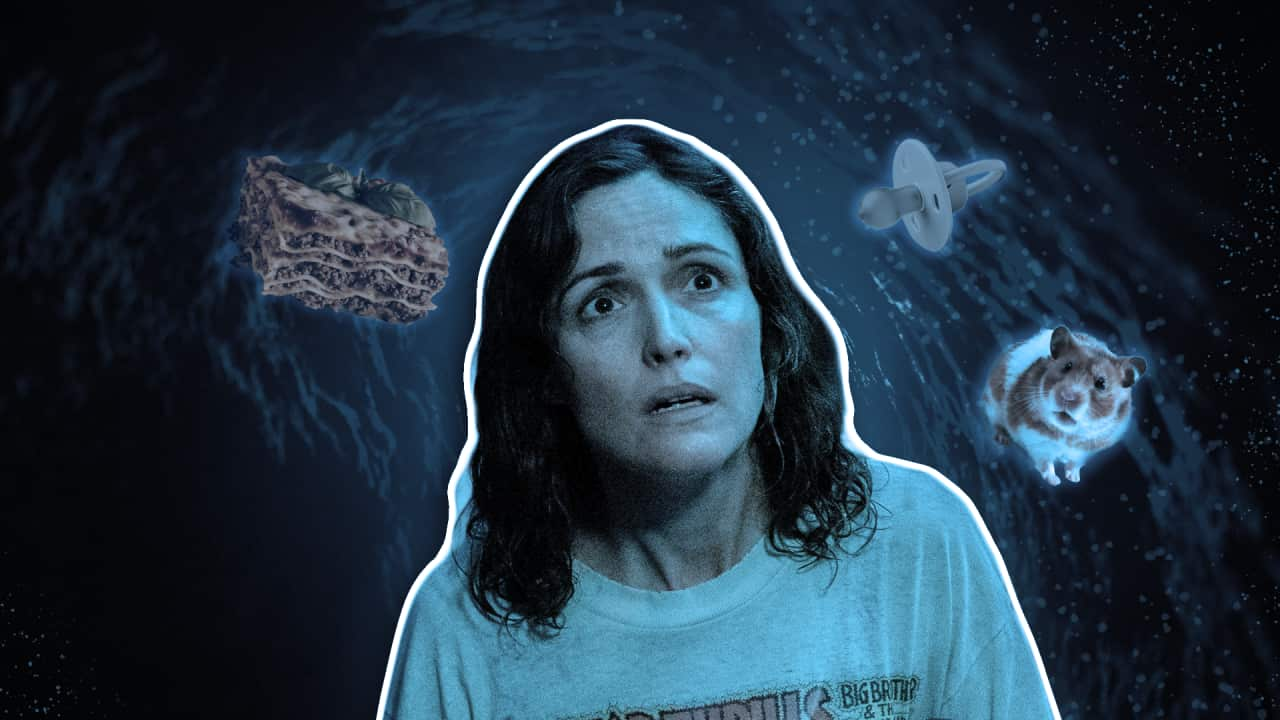

Feature
This film starring Rose Byrne airs the unspeakable parts of motherhood
Motherhood is often seen as an idealised, glossy experience. But this film, which has earned Rose Byrne her first Oscar nomination, aims to unpack the stigma that comes with regretting having children.
Published
It's pretty controversial to hate your children. It's even more controversial to leave your dying child in a hotel room to go smoke and flirt with a stranger.
But that's the type of motherhood at the heart of indie production house A24's new film, If I Had Legs I'd Kick You.
Starring Australian actor Rose Byrne and written and directed by American filmmaker Mary Bronstein, If I Had Legs I'd Kick You follows therapist Linda (played by Byrne) — one of the unapologetically difficult mothers you'll see on screen.
With her sick daughter requiring round-the-clock care, Linda's life begins to unravel in spectacular fashion. She becomes obsessed with a mysterious hole in her ceiling — a symbol of her waning mental state, poor decision-making and inner turmoil.
Forced into a tiny motel room with her dying child, Linda sneaks out at night to eat Reese's Peanut Butter Cups, drink wine and engage in a flirtationship with the motel worker downstairs (a surprising A$AP Rocky) despite having a husband. She ditches her daughter's therapy sessions, zones out and offers bad advice to her own clients, confessing her darkest thoughts to her therapist and colleague (Conan O'Brien).
She's stressed. Sleepless. Hungry. An alcoholic. Trying to hold it all together — and failing.
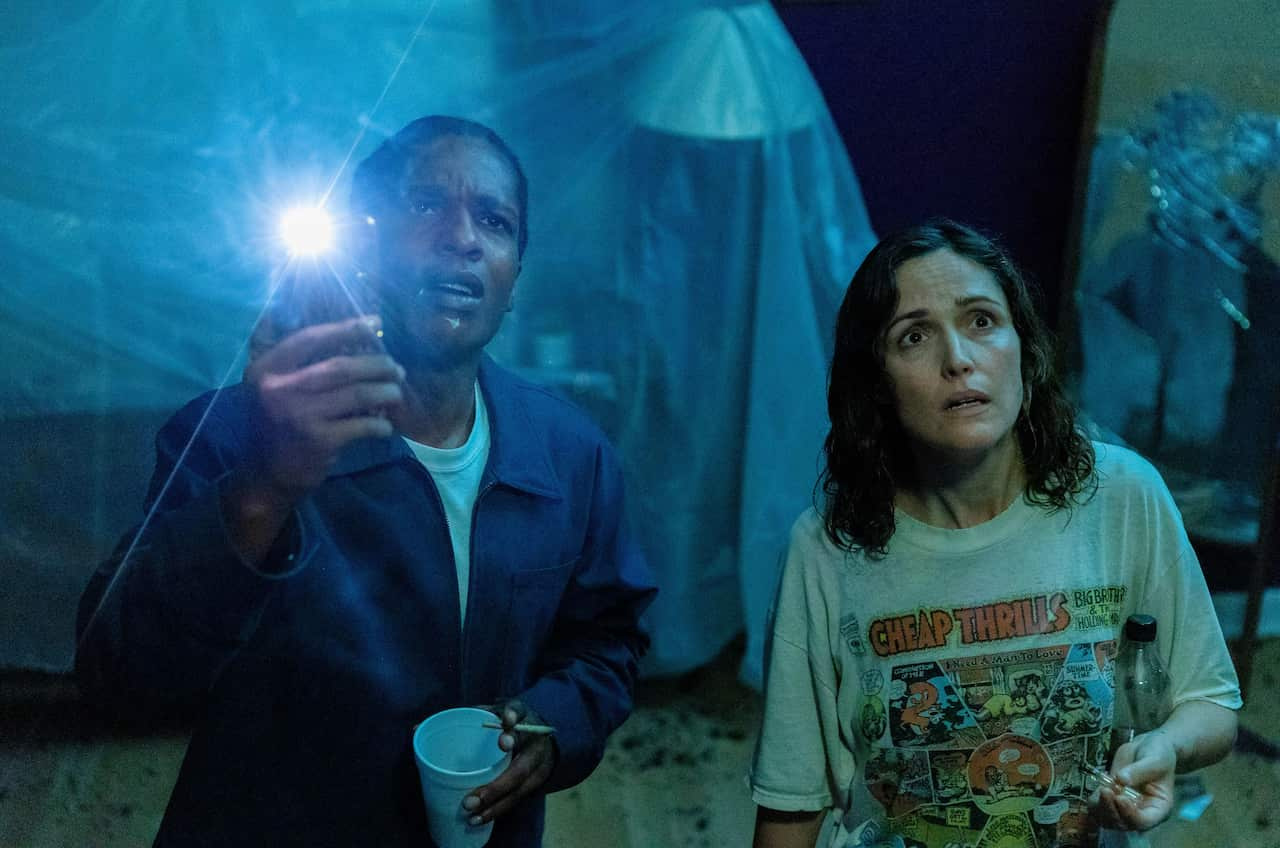
The casting might seem intentionally surprising, but the film is less about shock value than it is a meditation on the unspeakable parts of motherhood that rarely make it to the screen.
"What I wanted to do expressly was create a portrait of a mother that I had never seen before," Bronstein tells SBS News.
"When I thought about it, I was like: what movie have I ever seen where it centres a woman who happens to have a child, but it's not about her mothering and it doesn't judge her and it lets her be an actual human being? That's written and made by a woman?"
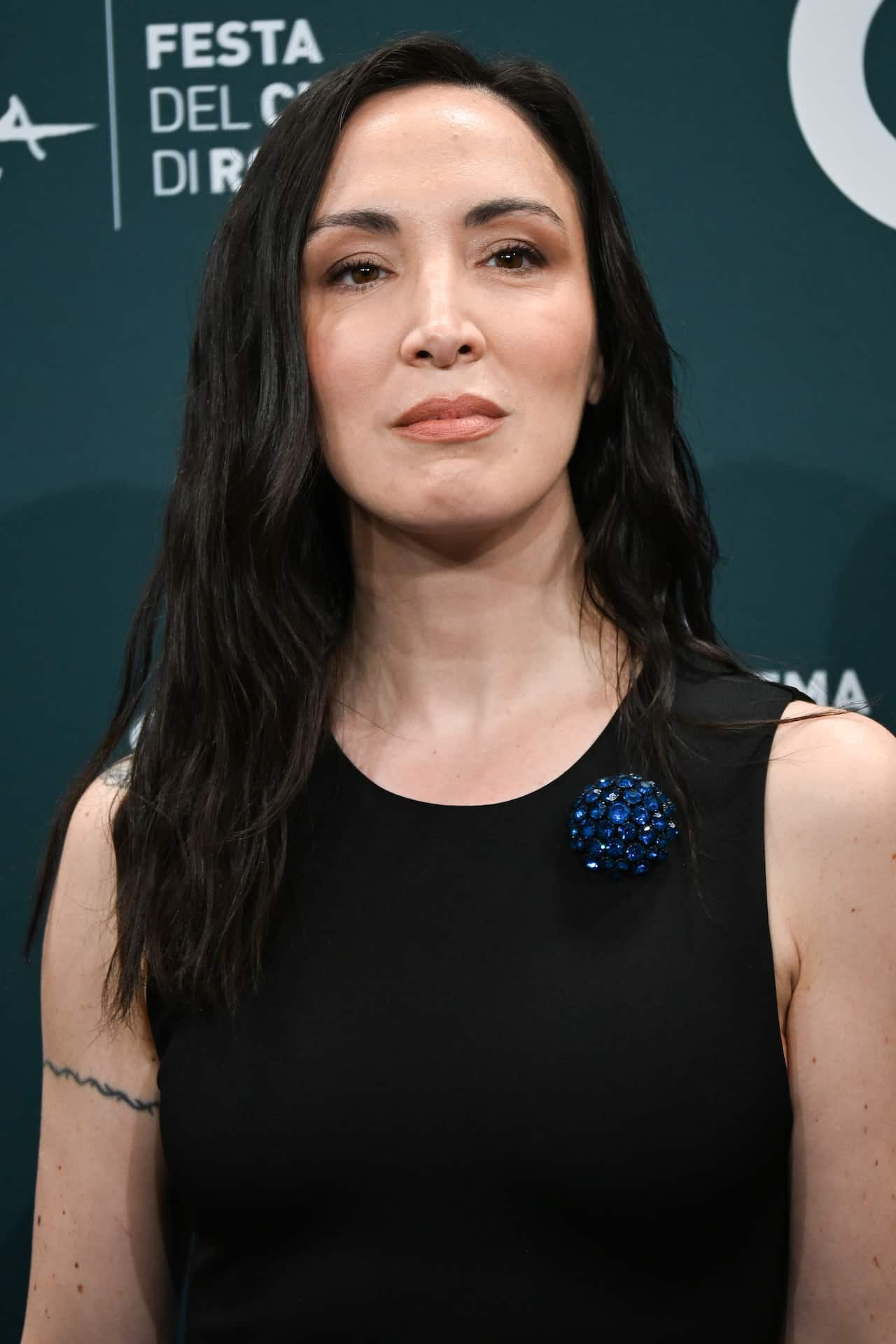
Bronstein says she made the film for a very particular audience: mothers who may not recognise themselves in glossy or idealised portrayals.
"The more specific you get with something, the more people can actually relate to it. The movie is about something that's very specific: a mother who's in a very specific situation that most mothers are not going to be in."
The film is partially inspired by Bronstein's own experience caring for her seven-year-old daughter in a tiny San Diego motel room, surrounded by takeaway containers and existential dread — while navigating what she calls a "confused combination of reverence and complete disrespect" for motherhood.
'You're stuck with her'
Across 113 minutes, If I Had Legs I'd Kick You drags its audience into a steady, uncomfortable spiral.
We watch Byrne's Linda eat with animalistic intensity — mouth open, food falling out — a visual shorthand for a woman who can't take care of herself. She drinks two bottles of wine a night while her daughter, meant to be under constant surveillance, sleeps alone. She buys a hamster and watches it escape and get run over by a car, guts spurting before the camera cuts abruptly to a slice of lasagna.
Then there's the hole: a growing, pulsing void in the ceiling that serves as the film's trigger point. Even Bronstein isn't sure if the hole is real or not, explaining it as a symbol of that place in your brain where you shove everything that you can't deal with — knowing full well that it will force its way out eventually.
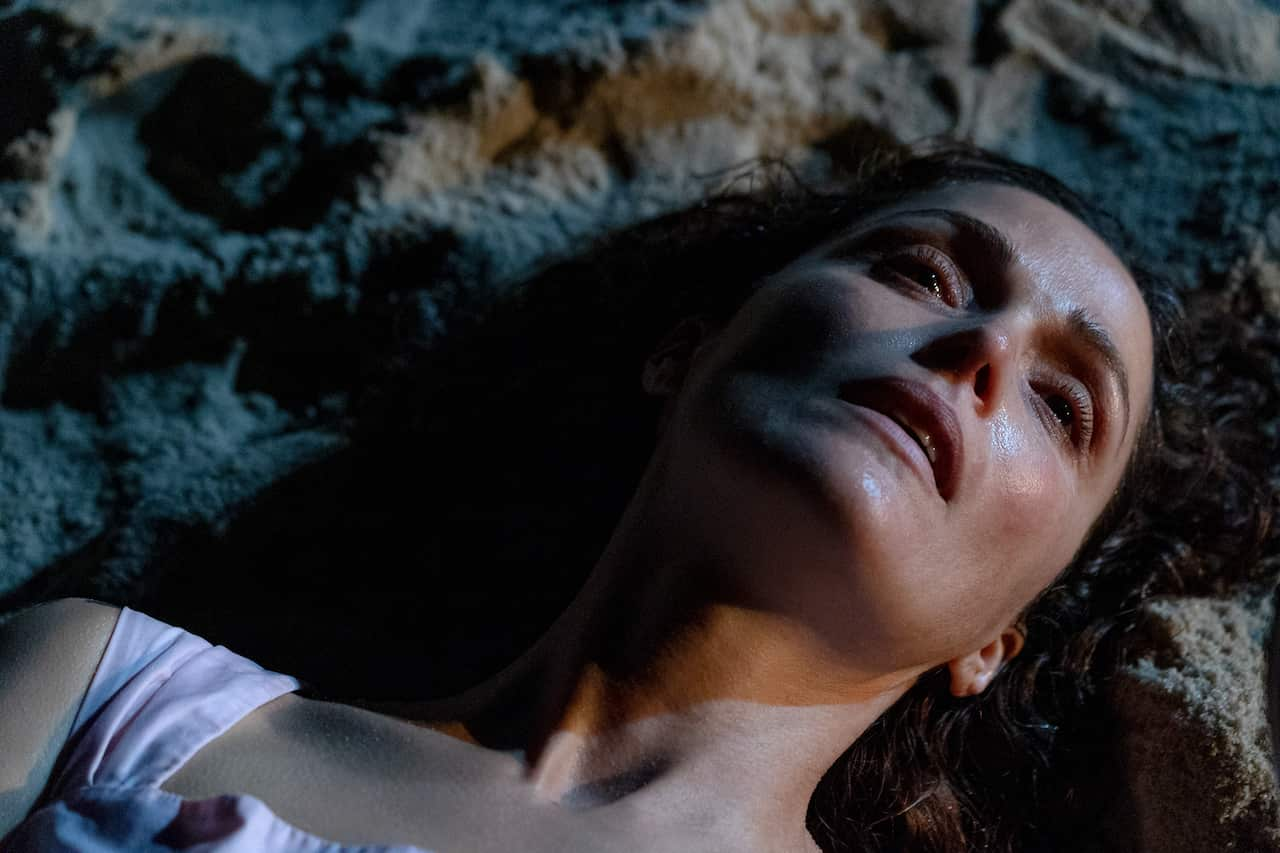
"This woman is having an existential crisis of tremendous proportions. She's experienced a trauma that she's avoiding at all costs. She's running away from it for the entire movie and it's going to come and get her," Bronstein says.
"It starts out as the first problem in the film and then expands out into this thing that takes on meaning beyond anything that reality can answer. I can't even really tell you [what it is] because it's a completely expressive idea that I can't fully articulate in words."
Byrne's performance is repulsive, unkempt, unpleasant — and terrifyingly real.
"She's in a state where she cannot take care of herself in any way, shape or form. We don't even know if she's bathing," Bronstein says.
"She has a de-evolution of appearance in this film. As her emotional state goes down, so does her appearance. She can't pretend anymore on the outside, it's gone."
If you are seeing an actual child, your sympathy is immediately going to go with that child.
Her child, meanwhile, is a faceless voice that exists only off-screen and whose presence is felt through Byrne's reactions. The camera stays close to Bryne, lingering on the small, irritated microexpressions that have already generated Oscar's buzz.
"As soon as you're dealing with some of the behaviours that Linda is doing, if you are seeing an actual child, your sympathy is immediately going to go with that child. That's how we're wired," Bronstein says.
"What I wanted to do is make it impossible — impossible for there to be an easy way for the viewer to put their sympathy elsewhere than her. You're stuck with her. It's about her."
'There's a deep shame'
When it comes to motherhood on screen, the depictions we get are often narrow. In films like Bad Moms, the 'bad mother' is softened with humour — she might smoke too much or go out clubbing on a Wednesday, but she still loves her kids. She doesn't hate them. She doesn't regret becoming a mother.
That sanitation leaves little space for women who do struggle — those who experience perinatal depression, anxiety, or even regret having children entirely.
Up to one in five women experience perinatal depression or anxiety during pregnancy or following the birth of their baby, according to Perinatal Anxiety & Depression Australia (PANDA). Postnatal psychosis — rarer but more severe — affects one to two new mothers per 1,000 births. Women may also experience PTSD, bipolar disorder or schizophrenia after giving birth.
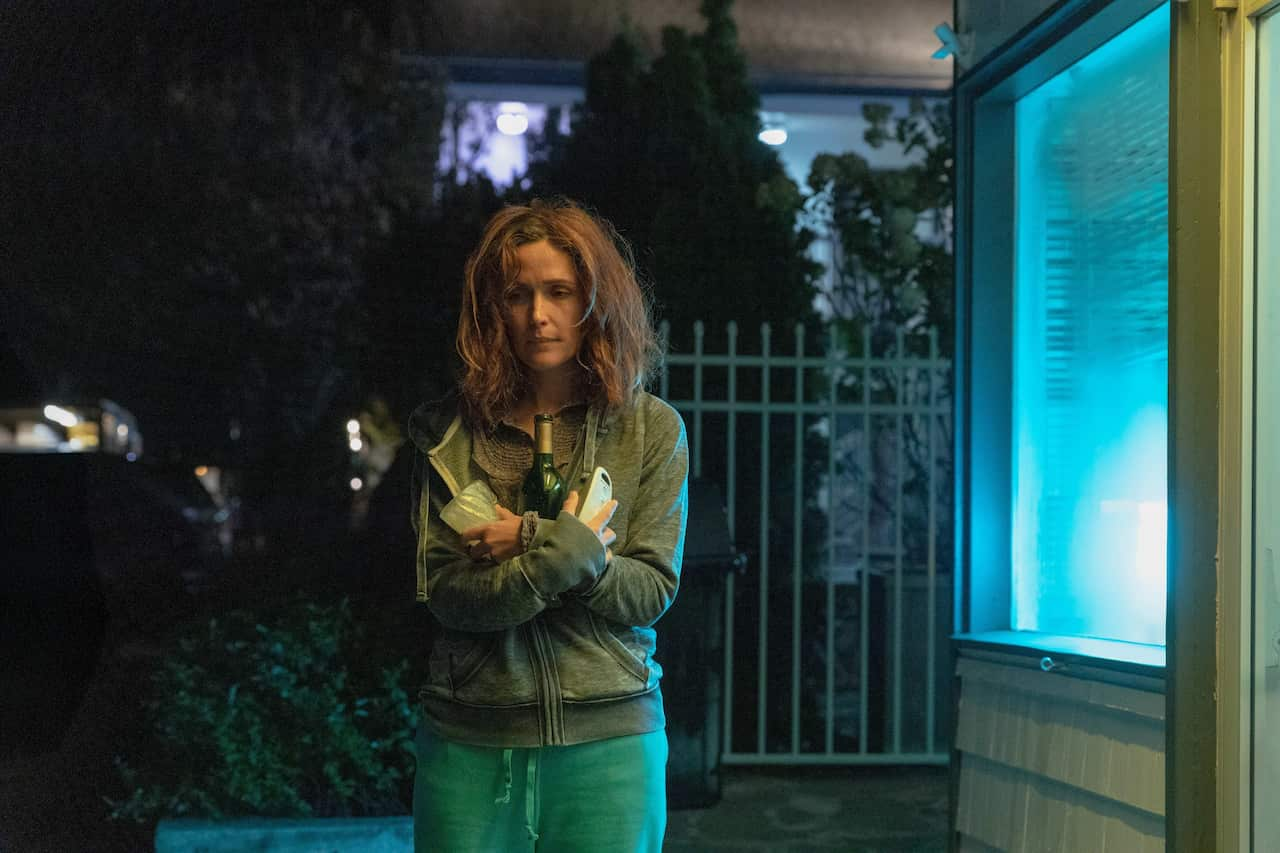
Julie Borninkhof, a clinical psychologist and the CEO of PANDA, says perinatal depression and anxiety often look different for everyone — sometimes like wanting to "climb into a dark little box and block yourself away", or being "wound up like a rubber band" with anxiety.
"Baby blues is an experience that's really common to women … but it's more short-winded and usually only lasts for a few weeks following the birth of a baby. Whereas anxiety and depression can go on for months and beyond the 12-month period," Borninkhof tells SBS News.
Bronstein tackles that taboo directly.
One subplot follows Linda's client Caroline (Australian Danielle Macdonald), a new mother who abandons her baby mid therapy session. Earlier, she emailed Linda a video of Andrea Yates — the real-life Texas mother who drowned her five children in 2001 after developing postpartum psychosis — fearing she might follow the same path.
"That storyline was very inspired by a lot of real cases that have happened in the [United] States. Every once in a while on the news, it's like: 'This mother did this. She did that'. She's villainised." Bronstein says.
"Sometimes it is bad people doing bad things. But most often, it's a mental illness. It's a real thing. It's postpartum depression and postpartum psychosis."
We're sold a bill of goods ... but it's not like that for a lot of women.
Bronstein wanted to challenge the overly sentimental depictions of motherhood we're sold.
"We're sold a bill of goods — the baby comes out, they give it to the mother, and you immediately look at and bond with the baby. But it's not like that for a lot of women."
Borninkhof agrees that varied portrayals can help dismantle shame and stigma.
"People still find it difficult to say that they're struggling and that they need help … this pervasive feeling of being a failure and that you're not able to do what so many others are able to do is still a real barrier to people seeking help."
'Maybe I got rid of the wrong one'
The film's most polarising moment comes when Linda, reflecting on a previous abortion, wonders aloud to her therapist: "Maybe I got rid of the wrong one".
It's a punch to the gut — and exactly the point.
"I wrote it in the script. I took it out. I put it back in because I knew that was the line that was going to make people uncomfortable," Bronstein says. "But I was like, no — that's why it needs to be in there."
I wrote it in the script. I took it out. I put it back in because I knew that was the line that was going to make people uncomfortable.
"It's the only time in the movie where she's truly being honest and expressing something really real and she's fuc---g kicked in the face for it."
Regret over parenthood isn't rare. While difficult to quantify, one 2023 study estimated that between 5 and 14 per cent of parents in developed countries regret having children and would choose childlessness if they could turn back time.
Online, communities like Reddit's r/regretfulparents (54,000 members) and the Facebook group 'I Regret Having Children' (88,000 followers) share anonymous confessions — a testament to the lingering taboo.
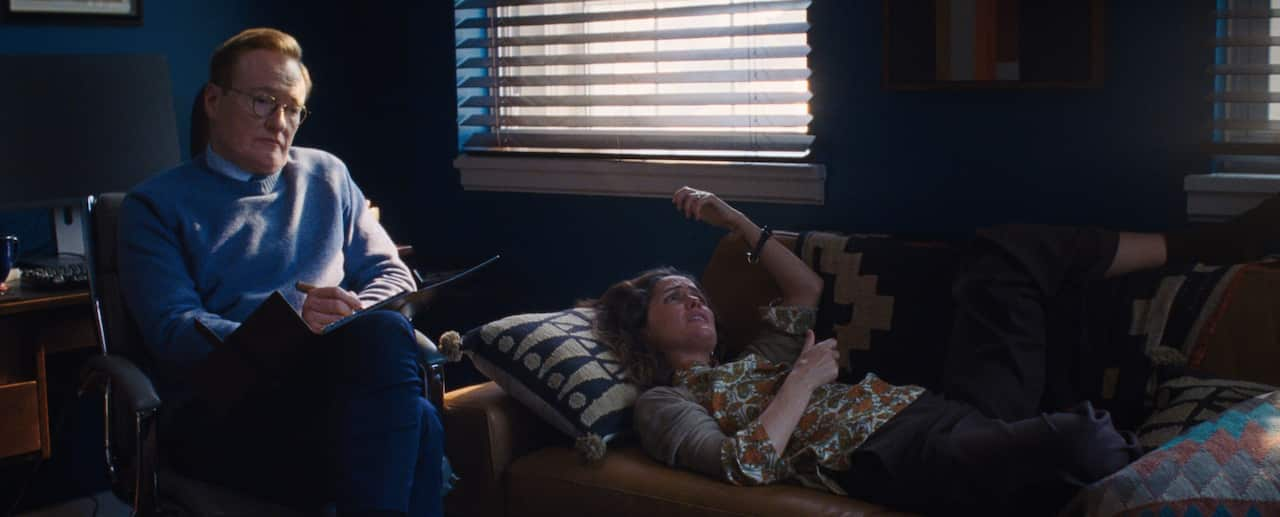
Borninkhof says such regret is "normal" and "human", but can become damaging if left unaddressed.
"For people who do experience regret about being a parent and then sit in that space, it's hard to parent through that feeling," she says.
"We need to get help with the internal conflict that comes with that as soon as possible."
'There's nothing wrong with being uncomfortable'
Borninkhof urges viewers with lived experience of perinatal mental illness to approach films like this with care.
"For some people who feel like they've gotten through and survived that experience and have learned and grown from it, they may feel a sense of empathy and distance from being able to see a movie like this," she says.
"Some people feel this great sense of empowerment and self-reflection because they see that their experience was real and valid."
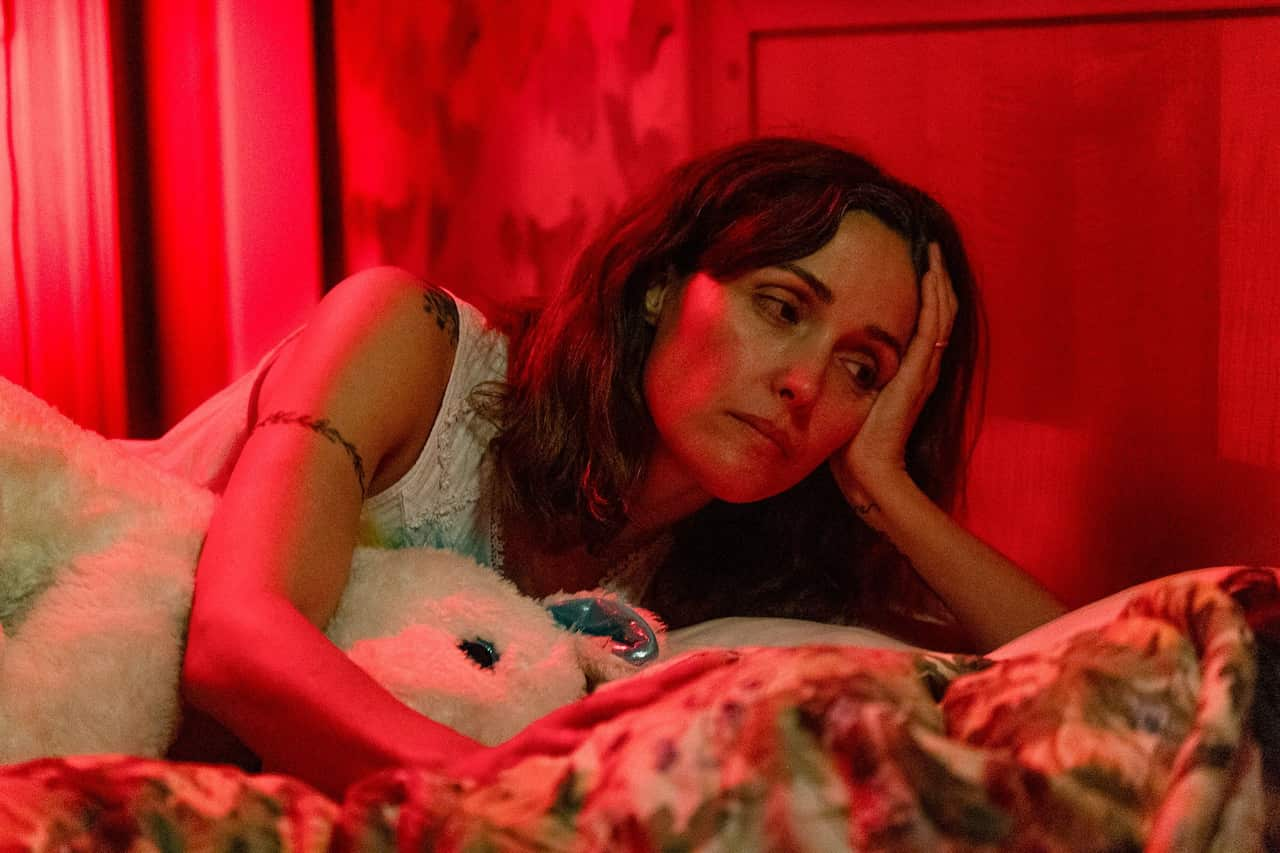
But she says for those who might be in the "thick of it", it might be confronting.
"That's not because the portrayal is not correct or shouldn't be told, but simply because our ability to hold all of our emotions at once and see them portrayed on a screen or reflected back to us in somebody's words can be really confronting."
Bronstein says discomfort is part of the point.
If something makes you uncomfortable, you need to wonder why it makes you so uncomfortable.
"There's nothing wrong with being uncomfortable. If something makes you uncomfortable, you need to wonder why it makes you so uncomfortable," she says.
"Why can't a woman wonder that in the privacy of her therapist's office? Why can't she say that? She's not saying it to her child. She's not even saying it to her husband.
"It's none of my business if somebody likes the movie or doesn't like the movie … I made a movie that really is dealing with some very uncomfortable things.
"But if the reason you don't like it is because something made you uncomfortable, that interests me. Why would that be a reason to not like a movie?"
The PANDA National Helpline is available 9am-7.30pm Monday to Friday on 1300 726 306. More information is available at panda.org.au.
Readers seeking support with mental health can contact Beyond Blue on 1300 22 4636. More information is available at Beyondblue.org.au.


